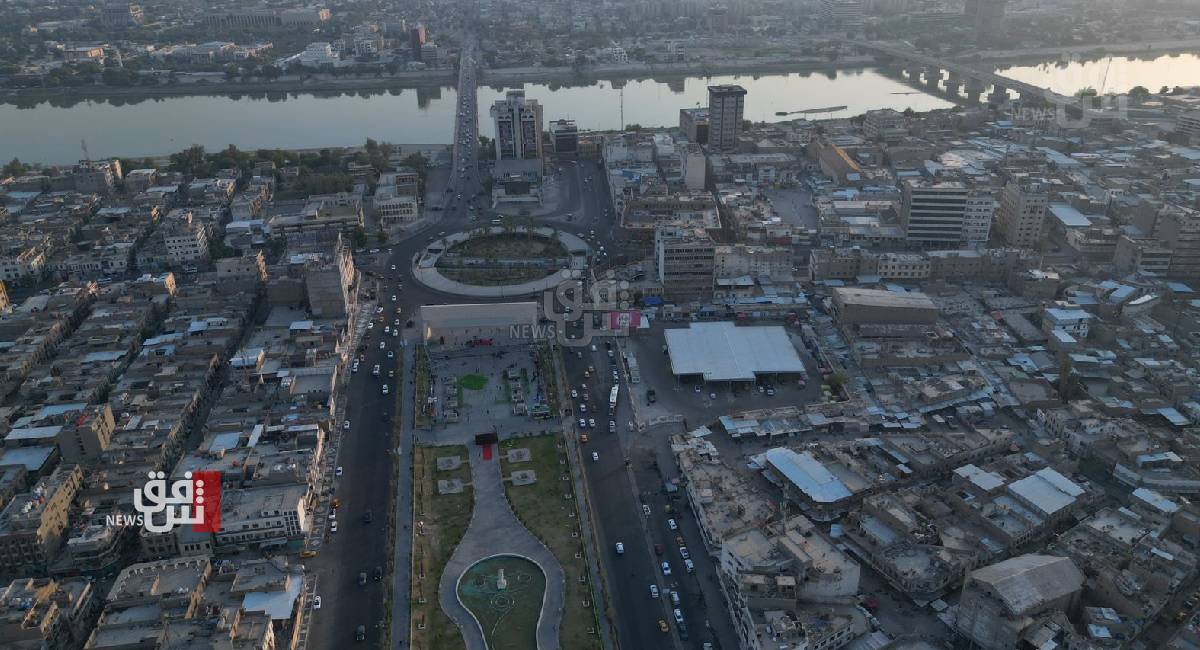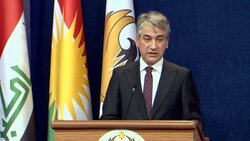Iraqi MPs, experts lament stalling 2024 budget despite being part of triennial budget

Shafaq News/ The approval of Iraq's 2024 general budget continues to face delays despite being part of a three-year "triple budget" requiring minimal adjustments. Four months into the year, the cabinet has yet to submit the amended budget tables to Parliament for approval.
Although the triennial budget approach aimed to streamline the process for 2024 and 2025, hitches emerged in finalizing the 2024 annexes. While the 2023 tables were included in the initial legislation passed in June 2023, the 2024 specifics are still pending.
Lawmakers Jasem al-Alawi have criticized the government's tardiness, attributing the delay to potential adjustments required due to a volatile exchange rate, fluctuating financial allocations, and the need to address spending shortfalls. He suggests that the Ministry of Finance revise the budget before submitting it for parliamentary approval.
"The delay allows the government to amend some budget tables and then send them to the House of Representatives," al-Alawi told Shafaq News Agency.
Lawmaker Muhammad Khalil said that only the first year of the triple budget is binding by nature. "The next two years (2024 and 2025) are subject to change," he explained to Shafaq News Agency. "However, despite our requests, the government has not submitted the budget to Parliament even though we are already in May."
Khalil said "the Parliament's finance and strategic planning committees have spared no effort to address challenges facing the 2024 budget tables through meetings with relevant parties." He blames the federal government for the delay, arguing the Ministry of Finance "should have submitted the budget earlier, especially considering the nearing end of the legislative session."
The Parliament's internal regulations mandate extending the legislative session and convening permanently upon receiving the general budget.
"The purpose of the triple budget was to avoid disputes in preparing budgets for the following two years," Economic expert Abdul Rahman al-Shaikhli told Shafaq News Agency. "However, problems arose in finalizing the annexed tables. The initial issuance only included the 2023 tables."
Al-Shaikhli pointed out that Law No. 16 of 2009 obliges the government to complete budget preparations three months ahead of the new year. "The delay lies with the Finance Committee, the Ministry of Finance for not submitting the tables, and even the Council of Ministers for not prioritizing their completion," he said.
He cites justifications the Ministry of Finance provided, including the lack of submissions from non-affiliated institutions regarding their budgetary needs and commitments.
Al-Shaikhli added that roughly 1,300 new projects were not budgeted for in 2023, along with the additional costs of one million newly appointed employees. "The 2024 budget also requires allocations for the upcoming 2025 elections, further pressuring the timeline."
Soran Omar, a member of Parliament's Economic Committee, aligns himself with the views of other speakers, pointing fingers at the government and the Ministry of Finance as the culprits behind the 2024 budget delay.
Omar predicted that the cabinet might reach an agreement on the budget tables next week, "followed by submission to Parliament for approval."
The House of Representatives voted on June 12, 2023, on the federal budget law for the years 2023, 2024, and 2025, in a first-of-its-kind initiative in the country's history in terms of the size of the budget as well as the number of fiscal years, amounting to 197 trillion and 828 billion dinars, with a fiscal deficit of 63 trillion dinars, which is nearly a third of the budget. Iraq's budget deficit has increased by 16 trillion dinars in the past year, bringing the estimated deficit for this year's budget bill to more than 80 trillion dinars.
The Iraqi budget comprises three main components: revenues, expenditures, and a budget deficit. Revenues include oil exports, taxes, and customs duties, while expenditures cover government spending in various sectors such as education, healthcare, infrastructure, and defense. The budget deficit occurs when expenditures exceed revenues and can be financed through borrowing or international aid.





